You searched for: googleseo开户霸屏包上【TG飞机:@bapingseo】谷歌shopping广告优化【TG电报:@bapingseo】跑分交易程序源碼包【Telegram:@bapingseo】168飞艇官方网站ju11net2备用网址官方网站?e6GBSs/aY1mk7.html
<< Previous | Displaying results 131-140 of 141 for "googleseo开户霸屏包上【TG飞机:@bapingseo】谷歌shopping广告优化【TG电报:@bapingseo】跑分交易程序源碼包【Telegram:@bapingseo】168飞艇官方网站ju11net2备用网址官方网站?e6GBSs/aY1mk7.html" | Next >>
-
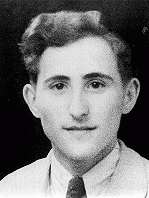
-
Alice (Eberstarkova) Masters describes leaving Czechoslovakia on a Kindertransport (Children's Transport)
Oral HistoryAlice grew up in a small village in Czechoslovakia. She was the middle of three daughters in a well-to-do, close-knit family. Her parents were religious and active in the Jewish community. After the German annexation of parts of Czechoslovakia in March 1939, antisemitism became more pronounced. Alice's uncle, a businessman who had moved to Great Britain, helped her parents arrange to send Alice and her two sisters on a Kindertransport (Children's Transport) to Britain. The sisters lived in a children's…
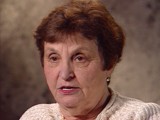
-
Madeline Deutsch describes adjusting to social and educational life after the war
Oral HistoryMadeline was born into a middle class family in an area of Czechoslovakia that was annexed by Hungary in 1938-1939. Her father worked out of their home and her mother was a homemaker. Madeline attended high school. In April 1944 her family was forced into a Hungarian ghetto. The family lived in the ghetto for two weeks before being transported to Auschwitz. Madeline and her mother were separated from her father and older brother. Neither her father nor brother survived the war. A week after arriving in…
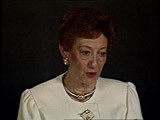
-
Esther Raab describes the uprising in Sobibor
Oral HistoryEsther was born to a middle-class Jewish family in Chelm, Poland. In December 1942, she was deported from a work camp to the Sobibor killing center in occupied Poland. Upon arrival at Sobibor, Esther was selected to work in a sorting shed. She sorted clothing and the possessions of the people killed at the camp. During the summer and fall of 1943, Esther was among a group of prisoners in the Sobibor camp who planned an uprising and escape. Leon Feldhendler and Aleksandr (Sasha) Pechersky were the leaders…
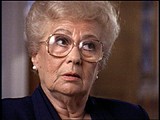
-
Sam Itzkowitz describes the first moments of liberation
Oral HistoryThe Germans invaded Poland in September 1939. When Makow was occupied, Sam fled to Soviet territory. He returned to Makow for provisions, but was forced to remain in the ghetto. In 1942, he was deported to Auschwitz. As the Soviet army advanced in 1944, Sam and other prisoners were sent to camps in Germany. The inmates were put on a death march early in 1945. American forces liberated Sam after he escaped during a bombing raid.
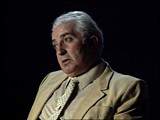
-
The Farhud
ArticleThe Farhud (pogrom), an outbreak of mob violence against Baghdad Jewry in June 1941, was a turning point in the history of Jews in Iraq. Learn more
-
Moringen Youth Camp
ArticleThe Moringen camp was one of the so-called youth protection camps that the Nazi regime established for young people who were alleged to have strayed from Nazi norms and ideals.
-
Alice (Eberstarkova) Masters describes going to a home for refugee children in England after arriving on a Kindertransport
Oral HistoryAlice grew up in a small village in Czechoslovakia. She was the middle of three daughters in a well-to-do, close-knit family. Her parents were religious and active in the Jewish community. After the German annexation of parts of Czechoslovakia in March 1939, antisemitism became more pronounced. Alice's uncle, a businessman who had moved to Great Britain, helped her parents arrange to send Alice and her two sisters on a Kindertransport (Children's Transport) to Britain. The sisters lived in a children's…
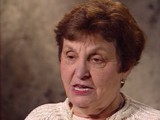
-
Felix Horn describes escaping from the Majdan Tatarski ghetto and seeking shelter
Oral HistoryFelix was born to an assimilated Jewish family in Lublin, Poland. His father was a locksmith and his mother was a singer. Following the German invasion of Poland on September 1, 1939, Felix fled east to Rovno and then to Soviet-occupied Lvov, where he was accepted at a medical school. After the German invasion of the Soviet Union in June 1941, Felix was taken to a labor camp. He escaped and returned to Lublin, and found that his family had been forced into the ghetto established there. After the…
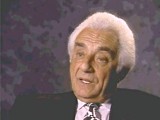
-
Stanisławów
ArticleLearn more about the history of Stanisławów during the Holocaust and World War II.
